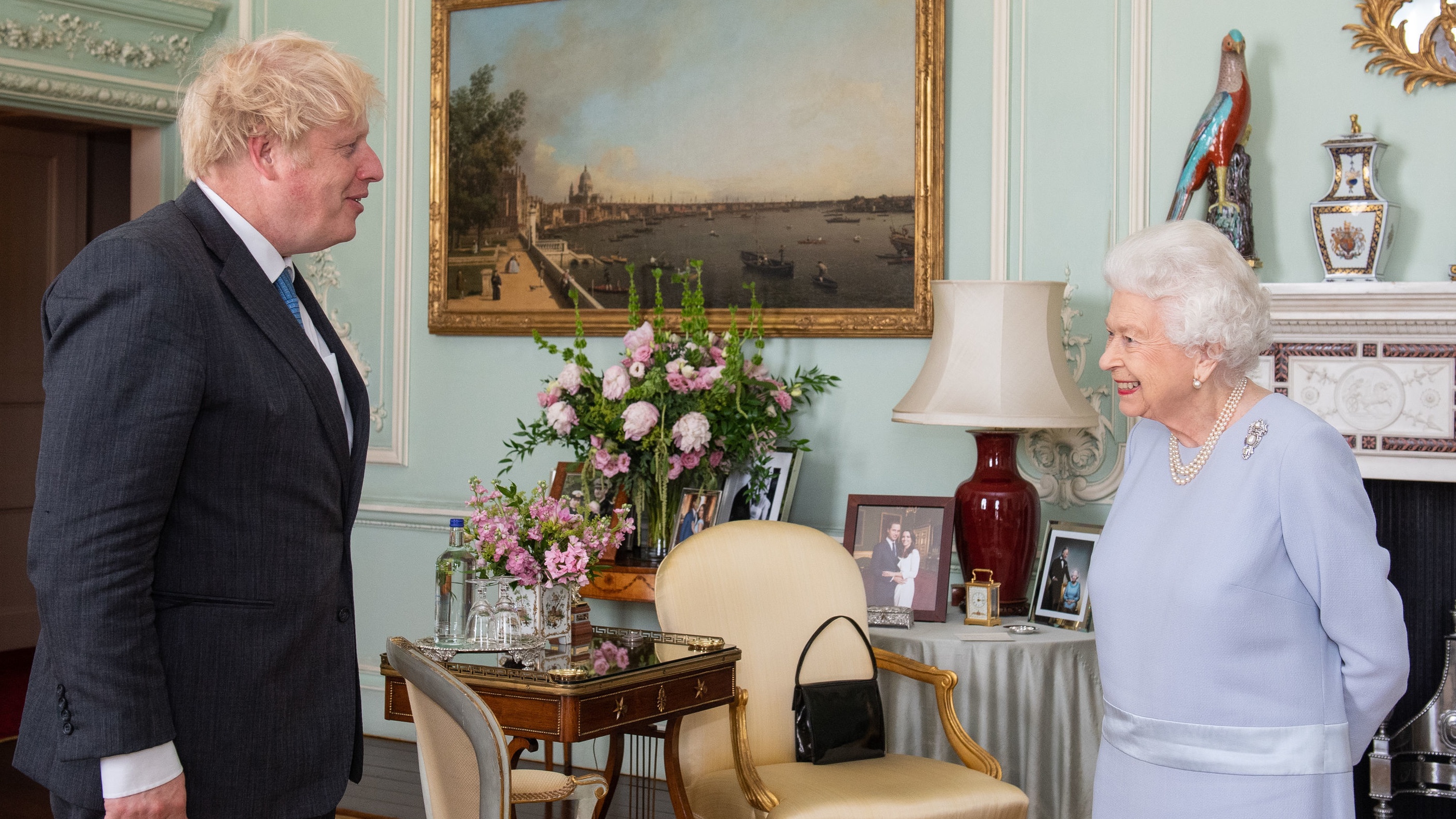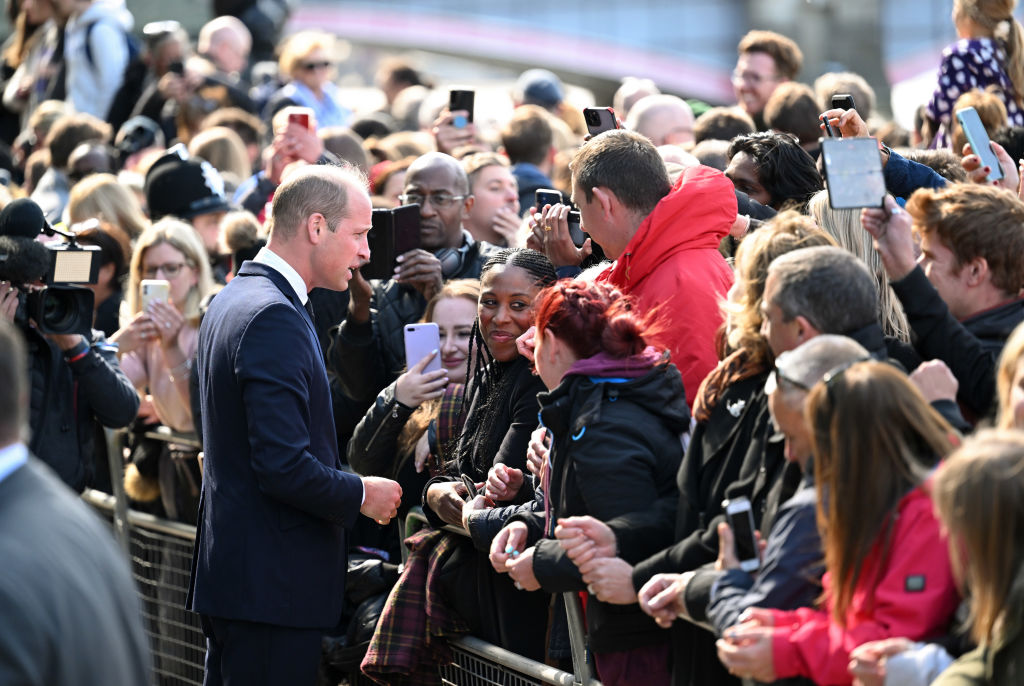‘It would be a rich irony if Cummings saved the Queen’s life’
Your digest of analysis and commentary from the British and international press

A free daily email with the biggest news stories of the day – and the best features from TheWeek.com
You are now subscribed
Your newsletter sign-up was successful
1. Did Dom Cummings save the Queen?
Steerpike in The Spectator
on safeguarding the monarch
“For a man who professes to despise the media, Dominic Cummings is certainly adept at courting it,” writes The Spectator’s Steerpike. Preview clips of his interview with the BBC’s Laura Kuenssberg tonight reveal a “startling” claim that “Cummings had to stop Boris Johnson on March 18 last year from going to see the Queen in person at the beginning of the Covid pandemic”, writes the columnist. It seems Johnson was “determined” for the weekly meeting to go ahead, forcing Cummings to explain that doing so would be “completely insane” and risk the monarch’s life. Downing Street denies the incident took place and Buckingham Palace has declined to comment but, writes Steerpike, “it would be a rich irony if the most iconoclastic figure to work in No. 10 was to thank for the safeguarding of the British monarchy, that most venerable of stately institutions”.
The Week
Escape your echo chamber. Get the facts behind the news, plus analysis from multiple perspectives.

Sign up for The Week's Free Newsletters
From our morning news briefing to a weekly Good News Newsletter, get the best of The Week delivered directly to your inbox.
From our morning news briefing to a weekly Good News Newsletter, get the best of The Week delivered directly to your inbox.
2. The school summer holidays are just six weeks of hell for working parents
Victoria Richards in The Independent
on a summer nightmare
“Folks, the moment we’ve all been dreading kicks in for some of us today: it’s the school summer holidays... aka six weeks of sheer hell for working parents,” writes Victoria Richards in The Independent. “I won’t miss the all-out tsunami of chaos that is the daily school run, but I am dreading the summer holidays all the same.” That’s because “it’s virtually impossible to make it work and go to work”, she says. Indeed, “I’m far from alone in feeling dread over the end of term: I hear the collective cries of despair echoed through various school and friend-based WhatsApp groups as we wrangle and bid, barter and swap days”, she writes. “What’s the answer?”, Richards asks. “Well, we could make the summer holidays shorter, we could make it four weeks instead of six,” she suggests, “or the government could actually stump up some proper support for parents, for a change.”
A free daily email with the biggest news stories of the day – and the best features from TheWeek.com
3. To curse social media is to exonerate society
Janan Ganesh in the Financial Times
on civic rot
“The idea that social media is the source of vaccine avoidance evokes the bots-caused-Brexit hype of yesteryear,” writes Janan Ganesh in the Financial Times, after US President Joe Biden suggested social media platforms are “killing people” by spreading disinformation. “It is not just hard to stand up,” writes Ganesh, but it also “suggests a political class in gleeful possession of a villain for all seasons”. “No doubt, great torrents of cant and quackery wash through Facebook. But so do facts about vaccine efficacy and dispenser locations that might otherwise elude millions of users,” he writes. And while the “crusade against these apps is hardly groundless”, it has become “a way of dodging the age and depth of civic rot, and not just in the US”. Ganesh concludes: “Facebook is easier to confront than the prospect that mature democracies must live with a permanent mass of essentially unreachable citizens.”
4. The Olympics haven’t even started, and they already have an asterisk attached
Eugene Robinson in The Washington Post
on the Covid Olympics
“The great joy of the Olympics is seeing so many young men and women from all around the globe putting politics aside, competing as equals and forging unlikely friendships based on mutual respect and admiration,” writes Eugene Robinson in The Washington Post. “The Games allow us, if only for a couple of weeks, to celebrate our common humanity and imagine a better world.” But, in the Tokyo Games, “the focus may be not on the quality of competition but on whether organizers can prevent a devastating outbreak of covid-19 in the Olympic Village and a dangerous rise in Japan’s overall infection rate”. Robinson continues: “The Coronavirus Games should have been canceled, but it’s too late for that now... The world will be watching not just to witness the thrill of victory and the agony of defeat, but also to learn the daily results of coronavirus testing. And the 2021 Olympics will always bear an asterisk — a symbol reminiscent of the spike-covered virus that sadly may be the star of these Games.”
5. Voters won’t forget this disdain for the rules
Hugo Rifkind in The Times
on fair play
“It’s like the Soviet traffic system. It’s a Zil lane. Just as you once got to dodge the Ladas as a member of the Politburo, so you now get to dodge the interminable Ping Cycle as a member of the British cabinet,” writes Hugo Rifkind in The Times. “Or at least, you did” - that’s before Boris Johnson and Rishi Sunak decided they would not be participants in a “pilot scheme” which would have meant they were free from isolation constraints after coming into contact with a Covid-positive Sajid Javid. While “the aesthetics of a prime minister in isolation on Freedom Day are, of course, not super” - because it is “like announcing the end of a war while wearing a gas mask” - this incident, and other recent government scandals, “represent a refusal to be constrained by what all the other mugs still innocently believe are the rules”, writes Rifkind. “Or, to put it more bluntly, a willingness, wherever possible, to cheat.”
-
 What to know before filing your own taxes for the first time
What to know before filing your own taxes for the first timethe explainer Tackle this financial milestone with confidence
-
 The biggest box office flops of the 21st century
The biggest box office flops of the 21st centuryin depth Unnecessary remakes and turgid, expensive CGI-fests highlight this list of these most notorious box-office losers
-
 The 10 most infamous abductions in modern history
The 10 most infamous abductions in modern historyin depth The taking of Savannah Guthrie’s mother, Nancy, is the latest in a long string of high-profile kidnappings
-
 Boris Johnson shocks UK by resigning from Parliament
Boris Johnson shocks UK by resigning from ParliamentSpeed Read
-
 Bees delay flight for three hours
Bees delay flight for three hoursfeature And other stories from the stranger side of life
-
 Toilet paper was stolen from Queen’s coronation
Toilet paper was stolen from Queen’s coronationfeature And other stories from the stranger side of life
-
 Andrew Tate and the radicalisation of teenage boys
Andrew Tate and the radicalisation of teenage boysTalking Point Teachers say male students are being sucked into former kickboxer’s ultra- macho world where they are exposed to his disturbing views
-
 How TikTok conquered the world
How TikTok conquered the worldfeature The Chinese-owned video app is expected to have 1.8 billion users by the end of the year
-
 King Charles, Prince William visit those in line for the queen
King Charles, Prince William visit those in line for the queenSpeed Read
-
 ‘The UK’s malaise will not end with the Prime Minister’s exit’
‘The UK’s malaise will not end with the Prime Minister’s exit’Instant Opinion Your digest of analysis from the British and international press
-
 ‘Police tactics are not getting worse, they are simply being filmed’
‘Police tactics are not getting worse, they are simply being filmed’Instant Opinion Your digest of analysis from the British and international press